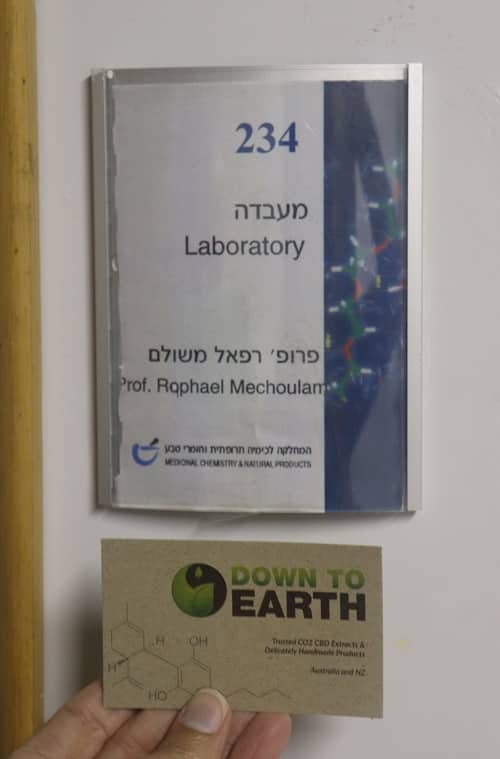Interview with Dr. Raphael Mechoulam: The Future of the Cannabis Industry
Down to Earth travelled several countries in 2019. While abroad, we furthered our research on the current status of the cannabis industry and where it is headed. It was during these travels that we were lucky enough to interview and listen to one of the pioneers of the cannabis industry, Dr. Raphael Mechoulam.
Who is Dr. Raphael Mechoulam?
Dr. Raphael Mechoulam is 89 years old and currently teaches Medicinal Chemistry at the Hebrew University of Israel in Jerusalem. It was in the 1960’s that Dr. Mechoulam- an organic chemist, and his team discovered the successful use of CBD (Cannabidiol) to treat epileptic patients. Journals did not publish his study on the Chronic administration of cannabidiol to healthy volunteers and epileptic patients until 1980. For over three decades, Dr. Mechoulam’s research remained stagnant and practically untouched by the medical industry. More than three decades passed before the medical field accepted CBD as a treatment for epilepsy. It was not until 2018 that the Food & Drug Administration finally approved the first cannabis-derived drug, Epidiolex, for the treatment of seizures in only two forms of epilepsy.
Interview with Dr. Mechoulam
We had a chance to chat with Dr. Mechoulam and ask him his views on the future of the cannabis industry, the use of synthetic derivatives, where he sees the industry heading, and how he would like to see the industry evolve.
During our interview, Dr. Mechoulam expressed hope that worldwide research and advancements in the cannabis industry and synthetic derivatives continue. Still, he was also realistic and wary about how the medical industry uses cannabis. The medical industry will likely continue to extract what it can from natural cannabis and change it in a manner to be controlled by industries. Rather than using cannabis in its natural essence, which can be much more accessible and available as well as provide many of the same benefits as its synthetic derivatives, the medical industry will continue to develop synthetic derivatives that can be patented and owned for the opportunity of monetary gain.

Dr. Mechoulam’s Vision and Hope for the Cannabis Industry
Dr. Mechoulam is sure that the revolutionary cannabis industry will continue to have a great positive impact in the medical world. For instance, advancements and research of cannabis will create more medicines for specific treatments and purposes. However, he is dismayed that corporations will likely take advantage and use the opportunities for their own priorities and commercial gains.
Dr. Mechoulam’s hope is that the world sees cannabis as more of a supplement. The pharmaceutical and medical industry stringently controls and regulates medicinal substances, but not supplements. Viewing cannabis as a supplement allows easier access to those who need it.
Dr. Mechoulam continues his breakthrough research into the uses and applications of cannabis and its synthetic derivatives. He is truly the father of the cannabis industry, because he has been a catalyst for the explosion of CBD, its availability, and its continued acceptance throughout the world. We hope that his hard work and passion continues to inspire new discoveries and maybe one day even the Nobel Prize for his crucial research and contributions to modern medicine.

